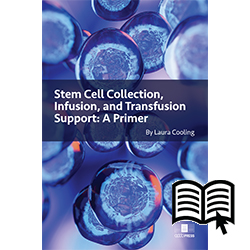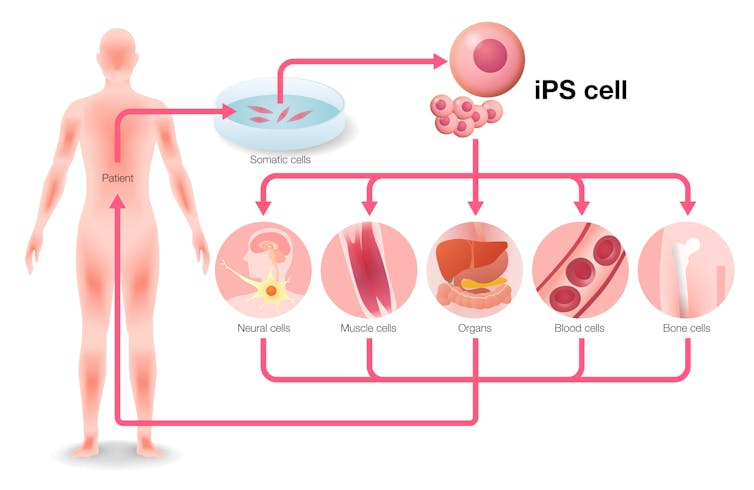În căutarea proverbială fântână a tinereții, Știința și tehnologia au luat rolul central. Astăzi, Cele mai promițătoare progrese în longevitate nu se regăsesc în apele mitice, ci în tărâmurile celulelor stem, Creșterea organelor, și biotehnologie. Deoarece descoperirile științifice continuă să lumineze calea către durata de viață extinsă, a new breed of longevity clinics are emerging, harnessing these advancements to offer unprecedented life extension possibilities. These pioneering clinics are focused on the development of autologous organs and the innovative use of stem cells to promote organ growth and rejuvenation.
This article delves into the exciting world of stem cells and organ growth, exploring the role of longevity clinics and their significant contributions to life extension strategies. Whether you are a medical professional, a biotech investor, a wealthy individual seeking to prolong your vibrant health, or simply someone intrigued by the possibilities of these breakthroughs, this article will serve as a comprehensive guide.

The Power of Stem Cells in Organ Growth
Stem cells are the master builders of the body, possessing the unique capability to develop into various cell types, from heart cells to liver cells, and everything in between. This extraordinary versatility makes them a crucial component in organ growth and regeneration.

Celule stem: A Primer
Stem cells exist in two primary forms: Celule stem embrionare, which can transform into any cell type in the body, și celule stem adulte, which have a more limited range of transformation but can still regenerate various tissues under specific conditions.
În ultimii ani, Celulele stem pluripotente induse (iPSCS) have also gained prominence. iPSCs are adult cells genetically reprogrammed to an embryonic stem cell-like state, thereby acquiring the ability to differentiate into various types of cells.

Stem Cells and Organ Regeneration
The application of stem cells in organ regeneration stems from their capacity to replace damaged or dead cells. In the context of organ failure or degenerative diseases, stem cells can potentially provide a renewable source of replacement cells to repair the afflicted organ.
De exemplu, in heart diseases, stem cells can be used to regenerate heart muscle cells, blood vessel cells, and the cells lining the heart chambers. Similarly, in liver diseases, stem cells can potentially replace damaged liver cells and help restore the organ’s function.

Autologous Organs: The Future of Transplantation
While stem cell therapy holds great promise, another groundbreaking approach to organ regeneration lies in the development of autologous organs. Autologous organs are organs grown from a patient’s own cells, thereby eliminating the risk of immune rejection, a common complication in transplantations.

The Process of Creating Autologous Organs
The process of creating autologous organs involves several steps. Primul, a small sample of the patient’s tissue is taken. Stem cells are then isolated from this tissue and cultivated in a lab until they multiply into the millions. These cells are then placed on a scaffold that has been designed in the shape of the organ needed. Peste orar, the cells grow around the scaffold, eventually forming an organ that can be transplanted back into the patient.
Autologous Organs: A Look at Current Research
The development of autologous organs is still in its early stages, but significant strides have been made. În 2019, researchers at Tel Aviv University successfully printed the world’s first 3D vascularized engineered heart using a patient’s own cells and biological materials. This achievement marked a significant milestone in the field of regenerative medicine and paved the way for the future of personalized organ transplantation.
Longevity Clinics: Pioneering Life Extension
The advancements in stem cell research and autologous organs have given rise to a new breed of medical centers—longevity clinics. These pioneering clinics leverage these scientific breakthroughs to provide innovative therapies aimed at prolonging life and enhancing health.
The Role of Biotechnology Centers
Biotechnology centers play a critical role in this ecosystem. These centers serve as the hub of research and development, where the latest advancements in stem cell therapy and organ growth are studied and refined.
Biotech companies like BioTime, Calico, and Human Longevity Inc, are at the forefront of this research, paving the way for the future of regenerative medicine. These companies are developing cutting-edge treatments using stem cells and autologous organs, revolutionizing the way we approach aging and disease.
Longevity Clinics: Offering a Glimpse into the Future of Medicine
Longevity clinics offer a wide range of services, from comprehensive health assessments and personalized wellness plans to advanced regenerative therapies. These clinics operate at the intersection of medical science and biotechnology, utilizing the latest research to provide patients with cutting-edge care.
Through a combination of preventive medicine, genetic counseling, personalized nutrition, and regenerative therapies, these clinics aim to extend healthy lifespan and improve overall quality of life. They provide a glimpse into the future of medicine—one where the risk of age-related diseases is significantly reduced, and a vibrant, healthy life can be enjoyed well into old age.
The Road Ahead
The advancements in stem cells, Creșterea organelor, and longevity clinics are revolutionizing life extension and opening up new avenues in regenerative medicine. Cu toate acestea, this field is still young, and more research is needed to fully understand and harness the potential of these technologies.
Nonetheless, the progress made so far is promising. As the science of longevity continues to evolve, we can look forward to a future where age-related diseases are a thing of the past, and a healthy, vibrant life can be enjoyed for many more years.
If you’re interested in learning more about these pioneering clinics and the innovative work they’re doing in advancing longevity through organ growth, don’t hesitate to reach out. The future of longevity is here, and it’s an exciting time to be part of the journey.